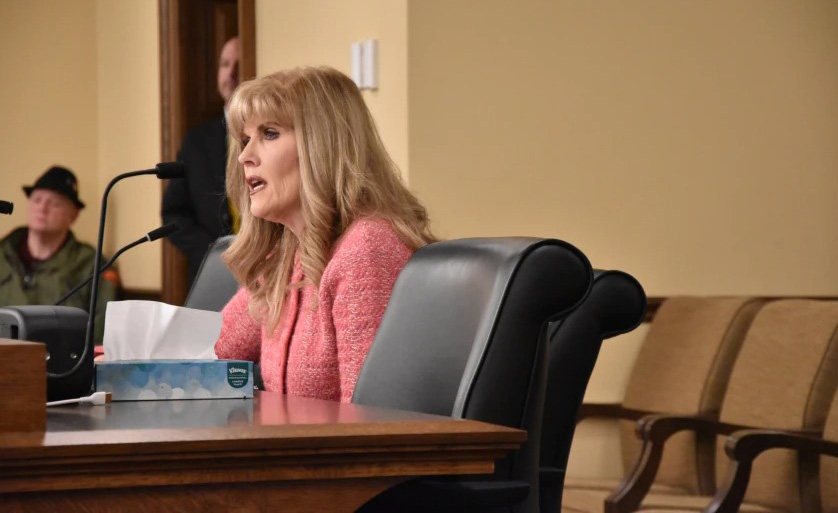Minnesota House Republicans introduced a pair of bills that would prevent transgender students from using the locker rooms, restrooms and sports that align with their gender identity.
The first bill, HF12, has over 30 Republican co-sponsors and would ban transgender students from playing on any K-12 girls sports team. The bill passed along party lines in the Education Policy Committee in a tense meeting Wednesday, during which dozens of activists, lawyers, doctors, coaches, parents and students testified for and against HF12.
“We know that males have a physical advantage. It’s a matter of fairness and safety,” said the bill’s chief author, Peggy Scott, R-Andover.
Any dispute about a student-athlete’s gender would be settled using the annual student sports physical to confirm gender based on the student’s physical anatomy, testosterone levels and chromosomes, Scott said.
The other bill, HF565, bans anyone with a Y chromosome — which would include nearly everyone assigned male at birth who has XY chromosomes — from using a girls restroom, locker room, changing room or shower. The bill also has its own provision banning transgender students from girls sports.
Chief author of the bill Rep. Duane Quam, R-Byron, said his bill is a “common sense” step to protect girls-only spaces.
HF 565 is awaiting a hearing in the Education Policy Committee. Both House bills have companion bills in the Senate.
While HF 565 defines a woman as a person without a Y chromosome, HF 12 defines a woman “as biologically determined by genetics and defined with respect to an individual’s reproductive system.”
Both bills were attacked in a press conference by Sen. Erin Maye Quade, DFL-Apple Valley, who said the bills threaten the mental well-being of transgender students.
“They are literally working to kill trans kids with these bills, and they know it and they don’t care,” she said. “It is wrong. It is shameful.”
Recent estimates on the number of transgender students in Minnesota are limited. In a 2019 Minnesota student survey, 2.8% of ninth-grade students reported being transgender, genderqueer, genderfluid or unsure about their gender identity.
Estimates for the number of transgender student-athletes are even more limited. An American Civil Liberties Union spokesperson told Newsweek that Save Women’s Sports, an advocacy group in favor of banning transgender athletes in girls sports, identified five K-12 transgender students competing in girls sports teams nationally in 2023.
National Collegiate Athletic Association President Charlie Baker told a U.S. Senate panel in December that of the over half a million athletes in the NCAA, he was aware of fewer than 10 transgender athletes. He did not specify whether that number included transgender men playing in men’s sports.
Related Articles
Ellison: Trump order on transgender athletes violates Minnesota law
Trump fires chairman of the Joint Chiefs of Staff
Judge blocks Trump’s executive order ending federal support for DEI programs
The Supreme Court won’t allow Trump to immediately fire head of whistleblower office
Election officials blast Trump’s ‘retreat’ from protecting voting against foreign threats
Regardless, Republican lawmakers argue these bills are needed to protect female students from the transgender student-athletes who do compete.
“Safety is a major issue,” Scott said. “These are serious reasons to keep girls with girls and boys with boys.”
OutFront Minnesota Executive Director Kat Rohn said during public comments on the bill that efforts like this exacerbate the mental health issues facing Minnesota’s transgender community.
“It tells kids, trans kids that they are not welcome in sports they love at a time when they need our care and support more than ever,” they said. “Everyone deserves a chance to play. And everyone should feel like they belong.”
Given that the DFL controls the Minnesota Senate and governorship, both bills are unlikely to become law.


Leave a Reply